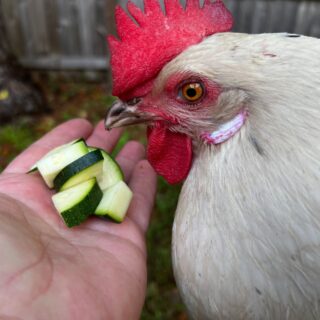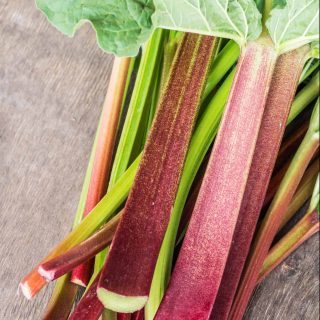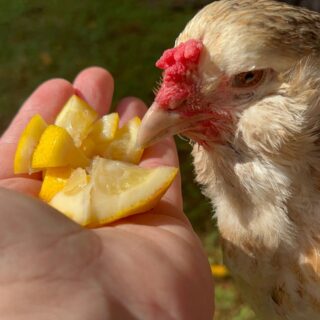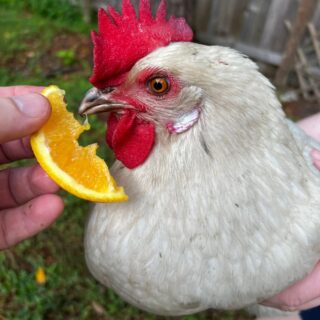Yes, chickens can eat raspberries! In fact, they absolutely love eating them. Raspberries, when combined with a good balanced regular diet, can be an excellent treat that is also beneficial to your entire chicken flock's health and wellbeing.
Keep reading to get tips on how to feed the raspberries, benefits of feeding them and more.
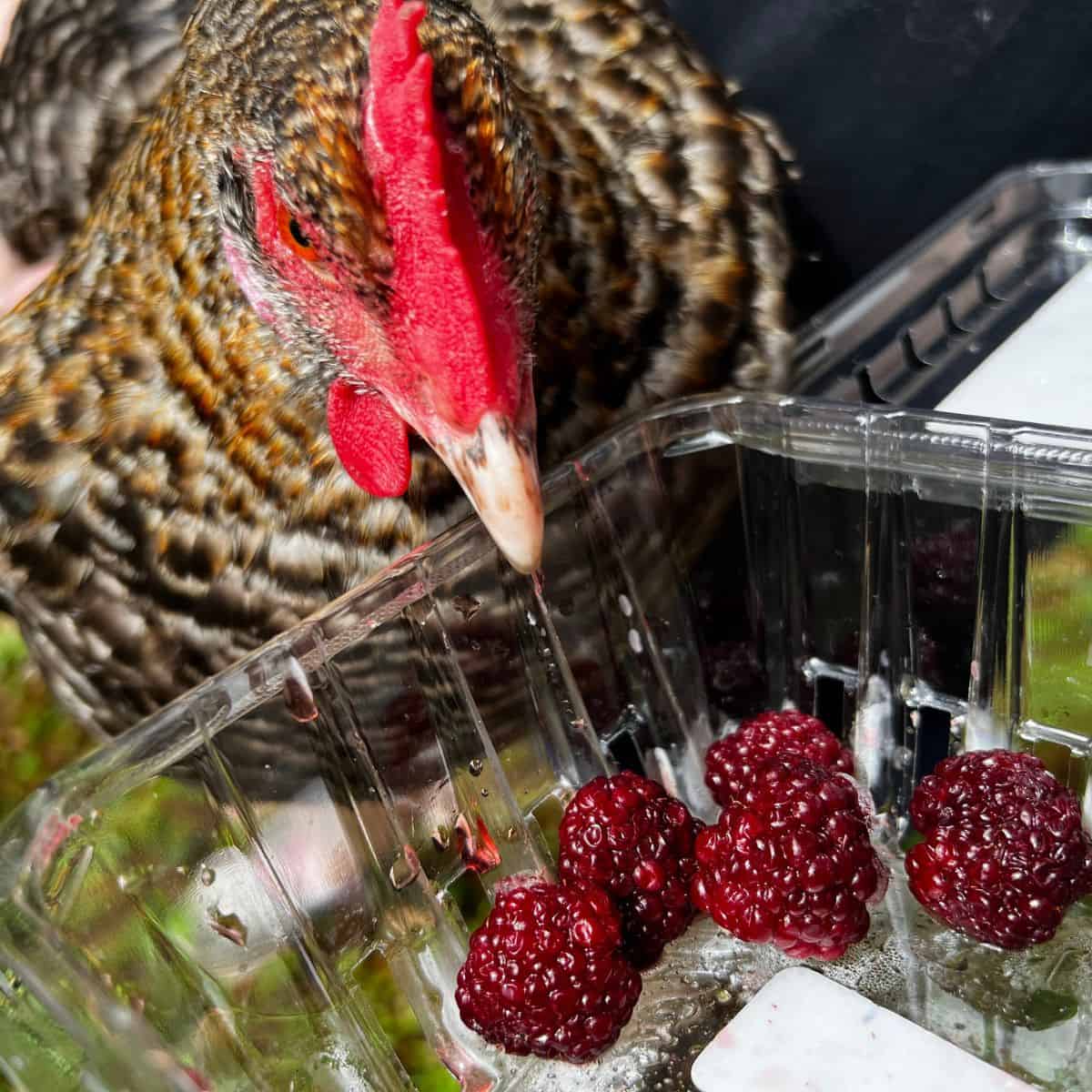
Jump to:
Are Raspberries Safe For Chickens?
Yes, for the most part, raspberries are safe for chickens to eat. However, they do contain xylitol, part of what gives raspberries their sweet flavor and a substance used in many artificial sweeteners, which can be toxic to chickens and other birds and lead to hypoglycemia, pancreas failure, and liver failure.
So, you will want to make sure your chickens are maintaining good health as you feed this treat. Just like chickens can eat rhubarb and chickens can eat asparagus, even though they also contain toxins, as long as they are fed with caution, they can be safely eaten.
Can Chickens Eat Raspberry Leaves?
Yes, chickens can eat raspberry leaves. The main watch out here is simply if they have been sprayed with pesticides that can be dangerous for your flock.
Can Chickens Eat Raspberry Seeds
Yes, chickens can eat raspberry seeds. It would be near impossible to remove the thousands of seeds from a single berry let alone a whole batch of them. Fortunately, raspberry seeds are not at all dangerous for your chickens so you can put away the microscope and tweezers for now.
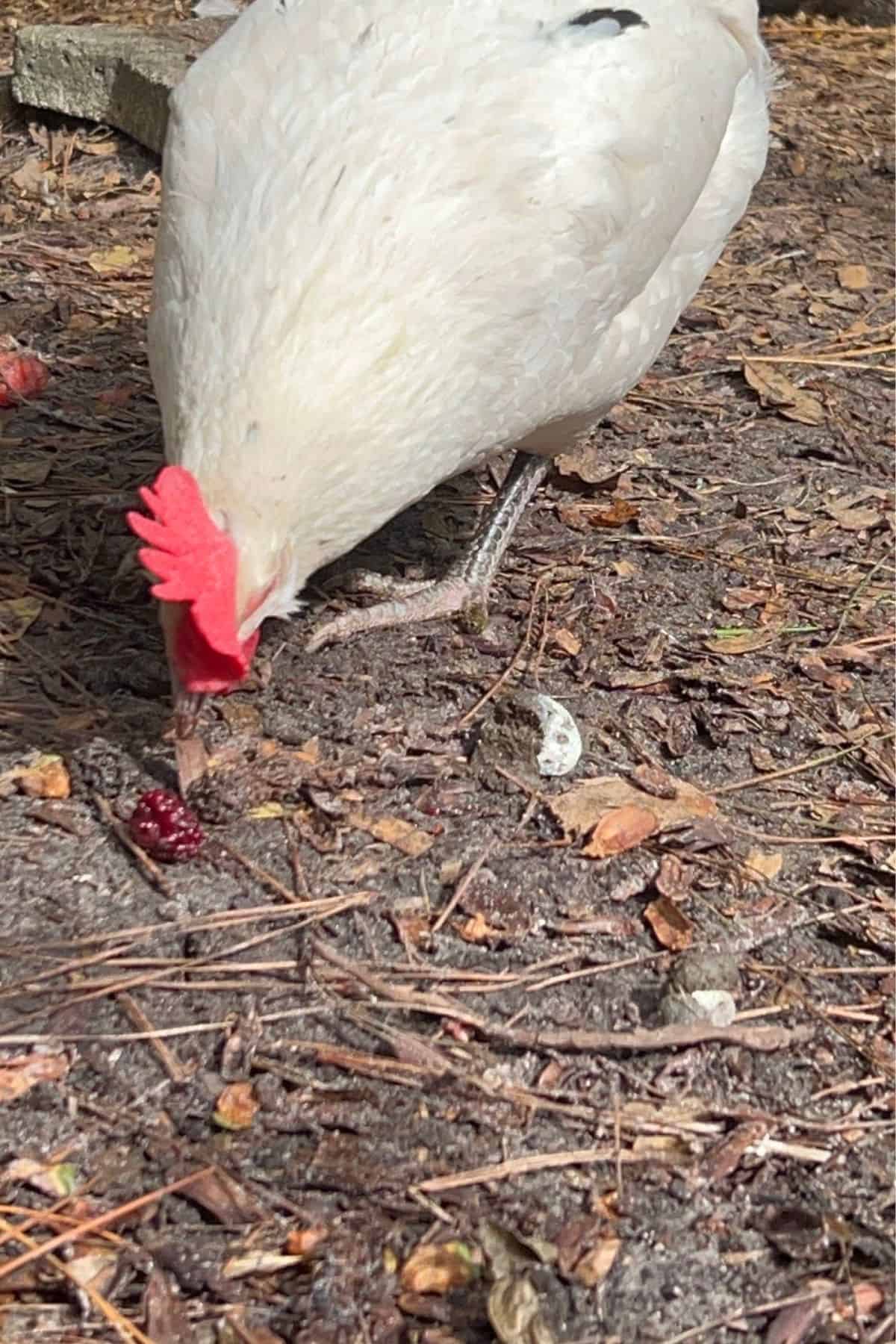
How To Feed Chickens Raspberries
If you have your own raspberry bush where your chickens can get to it, they will take care of this for you. You may not like the results but they will definitely handle feeding themselves.
However, if you would like to keep your berry bushes intact AND give your chickens a sweet snack, you can try some of these methods.
And remember, no matter which way you choose, make sure to wash them prior to feeding.
Fresh
This method is super simple. Just scatter them around in an area you don't mind chickens scratching through. Make sure you spread them far enough apart that they do not end up fighting and so you can keep a good eye on how many raspberries each chicken is eating.
Frozen
Chicken like fruits and berries. Chickens can eat cherries, chickens eat blueberries and chickens can eat blackberries in addition to raspberries. Try freezing some raspberries, blueberries, cherries, and blackberries, and then hang them all on a piece of fishing line together.
Your chickens will not only love their berry medley snack but they will also enjoy chasing the string around as it swings when pecked. This easy to make DIY chicken toy will play double duty as a treat supplement and entertainment (for you and the chickens)
How Many Raspberries Can They Eat?
We tend to stick to the 90/10 rule which states that 90% of your chickens' diet should be what they catch free ranging and from a quality chicken feed. The other 10% can be various other snacks and treats. Try feeding chickens watermelon, feeding chickens cantaloupe, feeding chickens rice, or even feeding chickens popcorn and feeding chickens peanuts!
Benefits of Raspberries
Vitamins, minerals, and other nutrients are essential to living a long and healthy life. Raspberries are packed full of them.
Here are some of the main nutrients in raspberries and how they can support your chickens:
- Antioxidants: repair damage from free radicals, fight off/prevent future damage, protect from oxidative damage, anti-inflammatory properties and more. Chickens can eat blueberries for even more antioxidants.
- Vitamin C: egg laying and production as well as immune and cellular health. Chickens can eat papaya for more of this vitamin.
- Fiber: overall digestive health and absorption of nutrients.
- Manganese: egg shell quality, bone development and more. Chickens can eat pears for even more manganese.
Feeding Chickens Raspberries FAQs
Yes, chickens can eat raspberries whole, but typically they will grab them and peck them apart.
No, chickens should not eat moldy or rotten raspberries. If you wouldn't eat it, your chickens should not either.
If you need more help with taking care of your chickens, check out The Organized Chicken Keeper for a complete system for managing their health through keeping their supplies stocked and coop clean.

